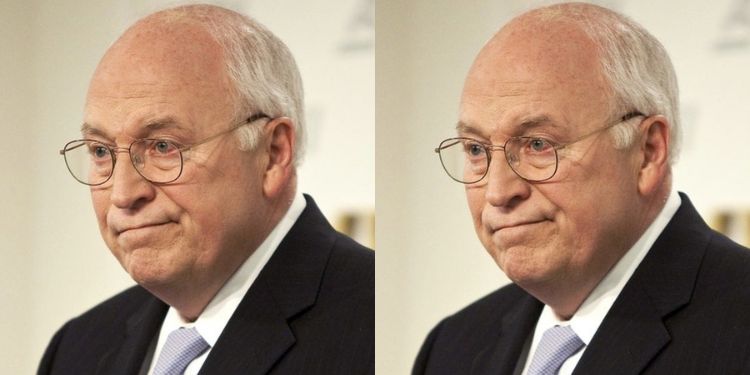Richard “Dick” Cheney, who served as Vice President of the United States under President George W. Bush from 2001 to 2009, has died at the age of 84, according to a statement released by his family.
According to reports from his family, Dick Cheney died due to complications of pneumonia and cardiac and vascular disease.
Cheney was one of the most influential figures in modern American politics and is widely considered the most powerful vice president in U.S. history. He played a central role in shaping U.S. foreign and security policy following the September 11, 2001, terror attacks.
He was a chief architect of the “war on terror,” advocating for the U.S.-led invasions of Afghanistan and Iraq.
Cheney strongly supported the Iraq War, which was launched on flawed intelligence claims that Iraq possessed weapons of mass destruction.
Before serving as vice president, Cheney held various government roles, including Secretary of Defence under President George H. W. Bush, where he oversaw the Gulf War.
Dick Cheney’s Political Impacts and Controversies
Cheney’s influence extended far beyond the ceremonial duties of the office, shaping U.S. foreign policy, military strategy, and executive power in ways that are still felt today.
Iraq WMD Deception
In August 2002, Dick Cheney delivered a speech to the Veterans of Foreign Wars in Nashville, where he claimed, “there is no doubt Saddam Hussein now has weapons of mass destruction.”
These statements came despite reports from the CIA and United Nations inspectors indicating a lack of verified evidence of nuclear or biological weapons in Iraq.
These claims helped build public and congressional support for the 2003 Iraq invasion.
The Iraq War led to catastrophic human loss. A Brown University study under the “Costs of War Project” estimates that direct and indirect consequences of the war contributed to up to 4.5 million deaths, including civilians, combatants, and those affected by displacement, disease, and infrastructure collapse.
Halliburton, an oilfield services company that Cheney once ran as CEO, became one of the largest beneficiaries of no-bid military contracts. Through its subsidiary, KBR (Kellogg, Brown & Root),
Halliburton received government contracts worth over $39 billion during the Iraq and Afghanistan wars, representing a nearly 700% increase compared to its pre-war earnings.
Cheney denied involvement, though financial disclosure records showed he retained deferred compensation worth approximately $2 million annually during his vice presidency.
Oil-Driven Climate Denial
After the attacks of 11 September 2001, Cheney pushed for aggressive counterterrorism policies.
He supported what became known as the ‘One Per cent Doctrine’, arguing that even a 1% chance of terrorist threats justified extreme action.
Further, he endorsed the CIA’s use of enhanced interrogation techniques, including waterboarding, sleep deprivation, stress positions, and sensory manipulation.
Torture Advocacy
The 2014 U.S. Senate Intelligence Committee Report confirmed that detainees were tortured at black sites in countries such as Poland, Thailand, Lithuania, and Afghanistan.
Cheney publicly defended the programme, saying, “I’d do it again in a minute.” He opposed efforts to close the Guantanamo Bay detention facility.
The Abu Ghraib prison scandal in Iraq erupted in 2004, when photos showed detainees being beaten, sexually humiliated, and tortured by U.S. personnel.
While Cheney was not directly implicated, he opposed limiting interrogation measures.
During his tenure, drone strikes also expanded in countries like Yemen and Pakistan. Leaked military files revealed civilian casualties and secret legal justifications kept from public view.
Before entering politics, Cheney served as CEO of Halliburton from 1995 to 2000, during which time he established strong ties with oil companies, including ExxonMobil.
In 2001, as Vice President, he led the National Energy Policy Development Group, commonly known as the Cheney Energy Task Force.
The task force met privately with executives from ExxonMobil and Chevron to plan U.S. energy strategy, including increased oil drilling and reduced environmental regulations.
According to financial disclosures and Forbes estimates, Cheney’s net worth exceeded $100 million, partly attributed to oil investments and deferred Halliburton earnings.
His administration resisted global climate agreements. The U.S. withdrew from the Kyoto Protocol in 2001, arguing emissions cuts would harm the economy. Cheney dismissed aggressive climate policies as “economic suicide.”
By 2025, the United States is expected to experience worsening climate-related disasters, including intensified wildfires in California and Hawaii, prolonged droughts, and rising global temperatures. Critics link Cheney-era energy deregulation with delayed climate action.
Cheney redefined the role of vice president. According to multiple accounts, including journalist Bob Woodward, Cheney co-managed major White House decisions on war, intelligence, and energy policy.
He was known for operating through confidential legal memos and secretive task forces.
The Plamegate Scandal
In 2003, the Plamegate scandal emerged when CIA officer Valerie Plame’s identity was leaked to the press after her husband, Ambassador Joseph Wilson, challenged the administration’s Iraq war intelligence.
Cheney’s chief of staff, Lewis Scooter Libby, was convicted in 2007 of perjury and obstruction of justice.
President Bush later commuted Libby’s sentence; President Trump issued a full pardon in 2018.
Also Read: Raila Odinga Dies at 80
During Cheney’s tenure, U.S. national debt grew from approximately $5 trillion in 2001 to about $10 trillion in 2009.
Major contributing factors included war spending, tax cuts introduced in 2001 and 2003, and expanded defence budgets.
Cheney was quoted in a 2002 Treasury meeting saying, “Deficits don’t matter,” according to former Treasury Secretary Paul O’Neill.
Cheney’s advocacy of neoconservative foreign policy influenced later political movements. His actions in Iraq and Afghanistan are seen as precursors to growing mistrust of government, which helped fuel later populist movements, including “Make America Great Again” (MAGA).
The U.S. withdrawal from Afghanistan in 2021 saw Taliban forces rapidly regain control, leading to scrutiny of the long-term U.S. strategy initiated during Cheney’s vice presidency.
His 2011 memoir, In My Time, defended his actions without apology.
In contrast, survivors from Fallujah and other Iraqi cities describe long-term effects of cancer from depleted uranium, destroyed infrastructure, and displacement.
Education and Career
Richard Bruce “Dick” Cheney was born on January 30, 1941, in Lincoln, Nebraska.
He attended Yale University, starting in 1959, on a full scholarship, but dropped out twice due to poor academic adjustment and grades.
After returning to Wyoming, Cheney enrolled at Casper College (a community college) before transferring to the University of Wyoming.
He earned a Bachelor of Arts degree in Political Science in 1965 and a Master of Arts degree in Political Science in 1966 from the University of Wyoming.
Cheney briefly attended a PhD program at the University of Wisconsin–Madison but dropped out to pursue internships and work in politics.
Also Read: SHA Manager Who Lost Daughters in Tragic Crash Dies
Dick Cheney began his political career in 1969, working in Congressman Bill Steiger’s office and then as an assistant to Congressman Donald Rumsfeld.
From 1975 to 1977, he served as White House Chief of Staff under President Gerald Ford.
Cheney was elected to the U.S. House of Representatives from Wyoming, serving six terms from 1979 to 1989.
He was appointed United States Secretary of Defence from 1989 to 1993 under President George H.W. Bush, where he oversaw key military operations, including the Gulf War.
Cheney later served as the 46th Vice President of the United States from 2001 to 2009 under President George W. Bush.
Follow our WhatsApp Channel and X Account for real-time news updates.
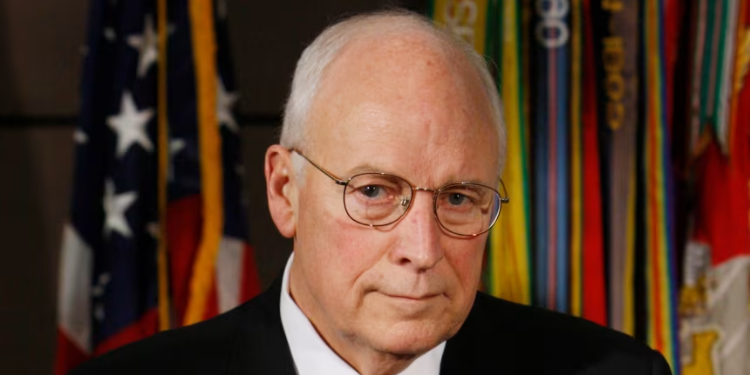


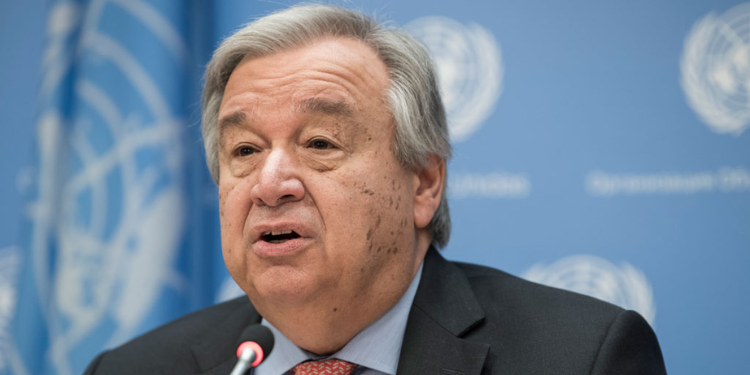

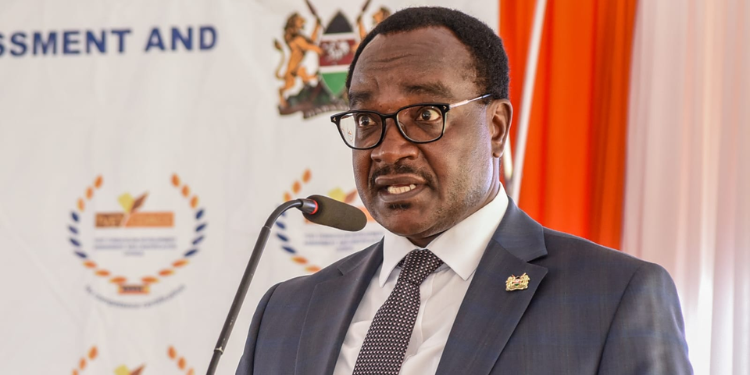

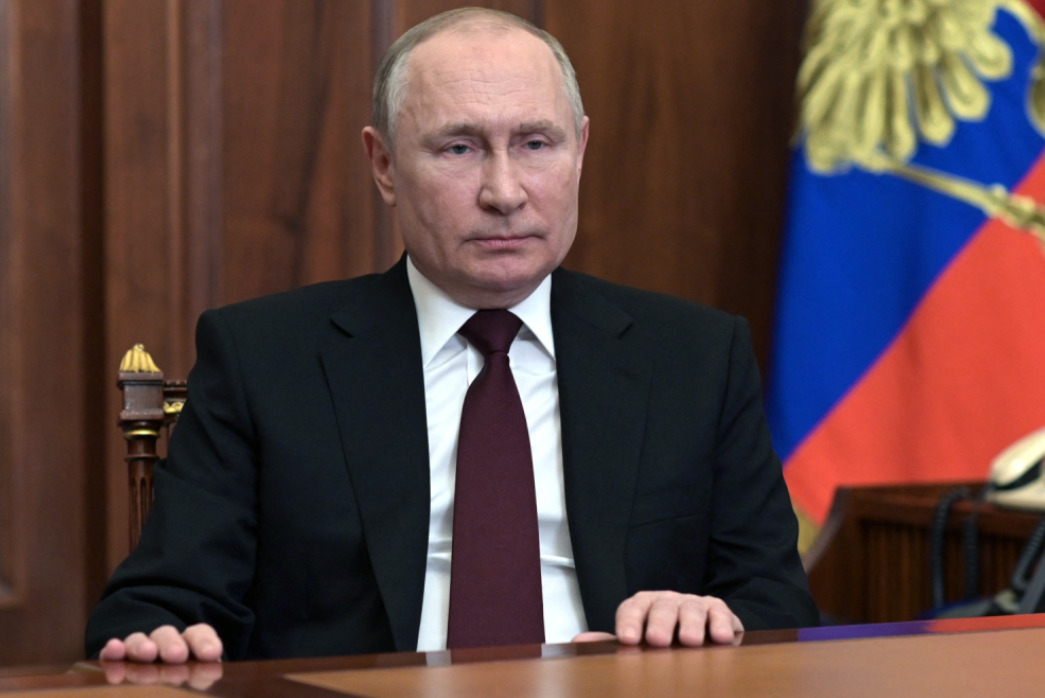

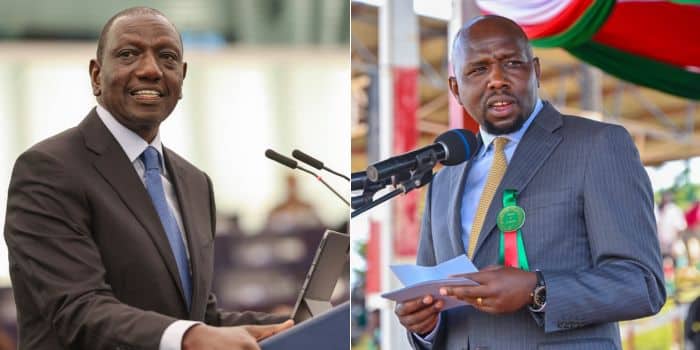
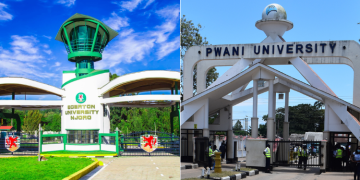






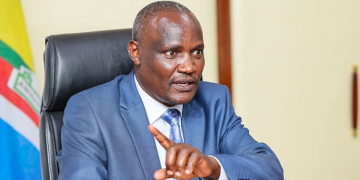
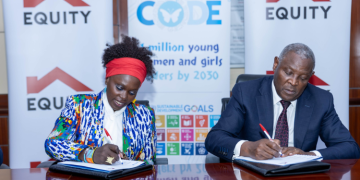
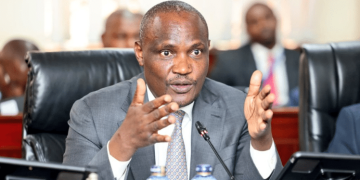

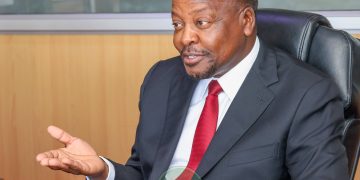




























![Senator Allan Chesang And Chanelle Kittony Wed In A Colourful Ceremony [Photos] Trans Nzoia Senator Allan Chesang With Channelle Kittony/Oscar Sudi]( https://thekenyatimescdn-ese7d3e7ghdnbfa9.z01.azurefd.net/prodimages/uploads/2025/11/Trans-Nzoia-Senator-Allan-Chesang-with-Channelle-KittonyOscar-Sudi-360x180.png)




















